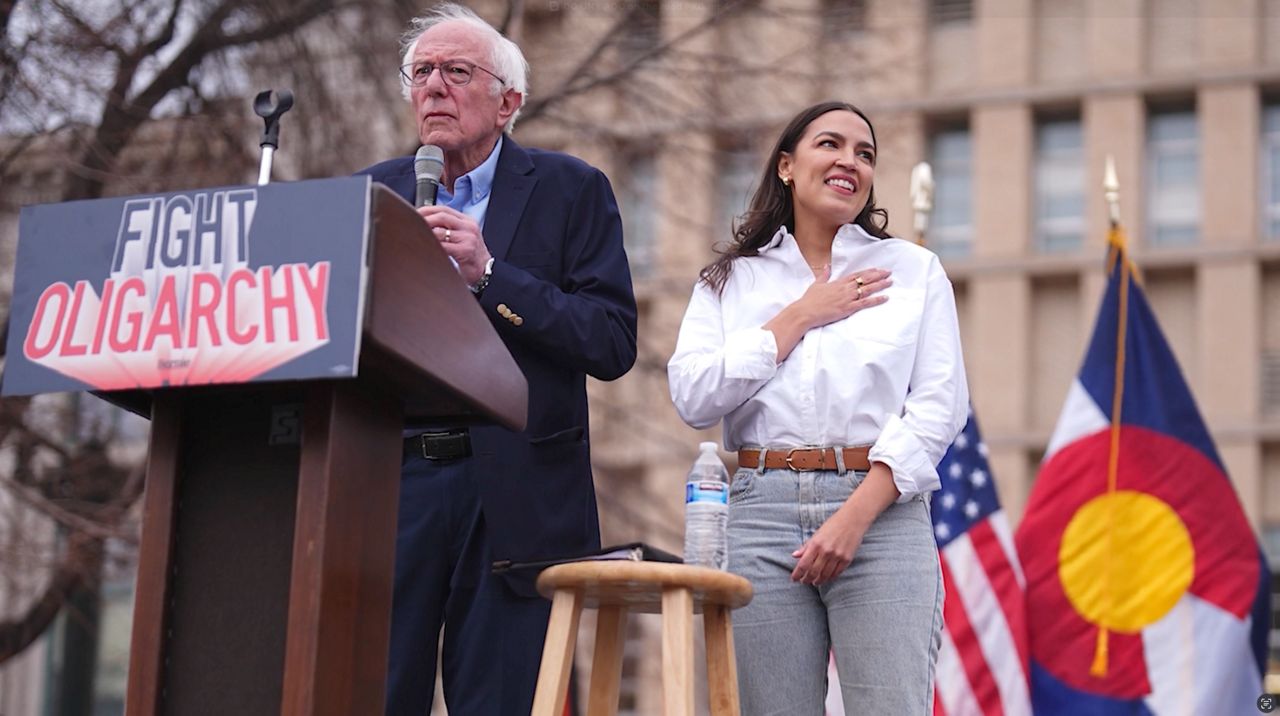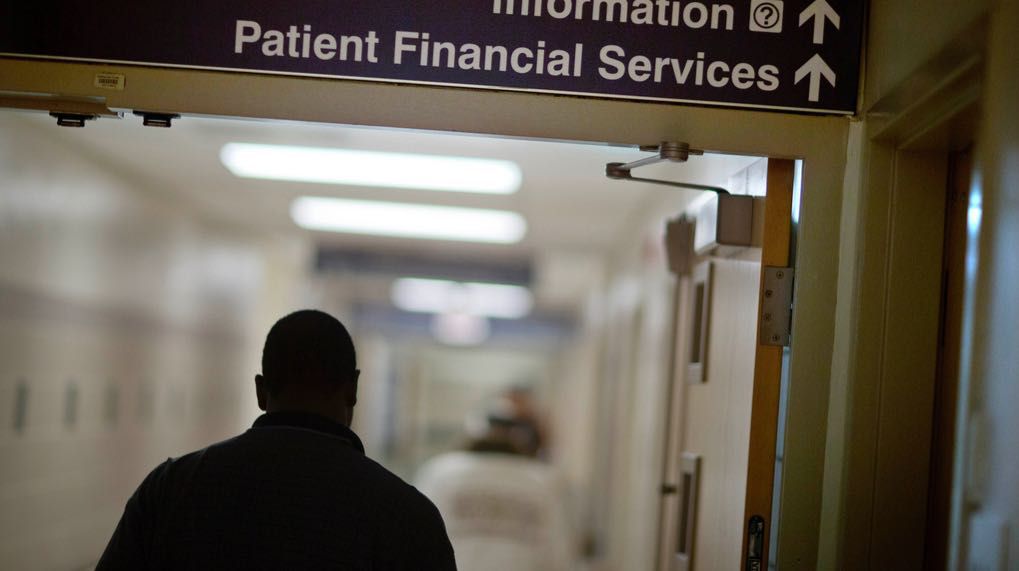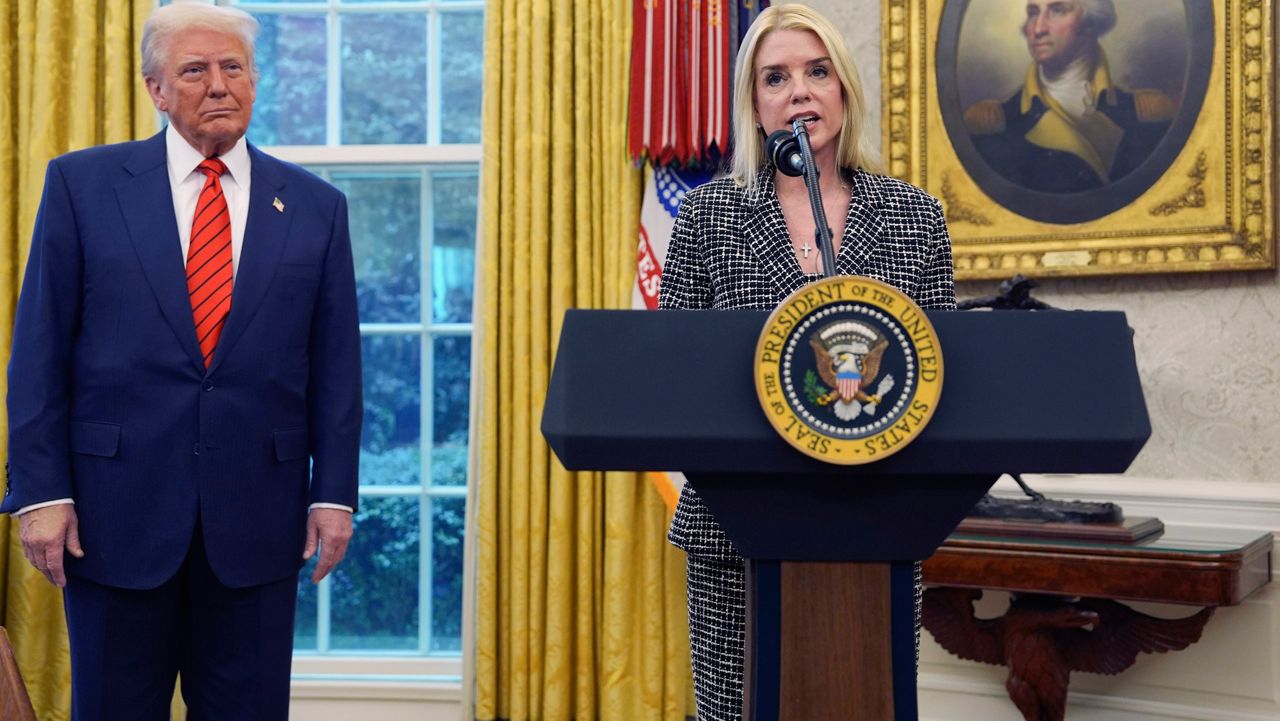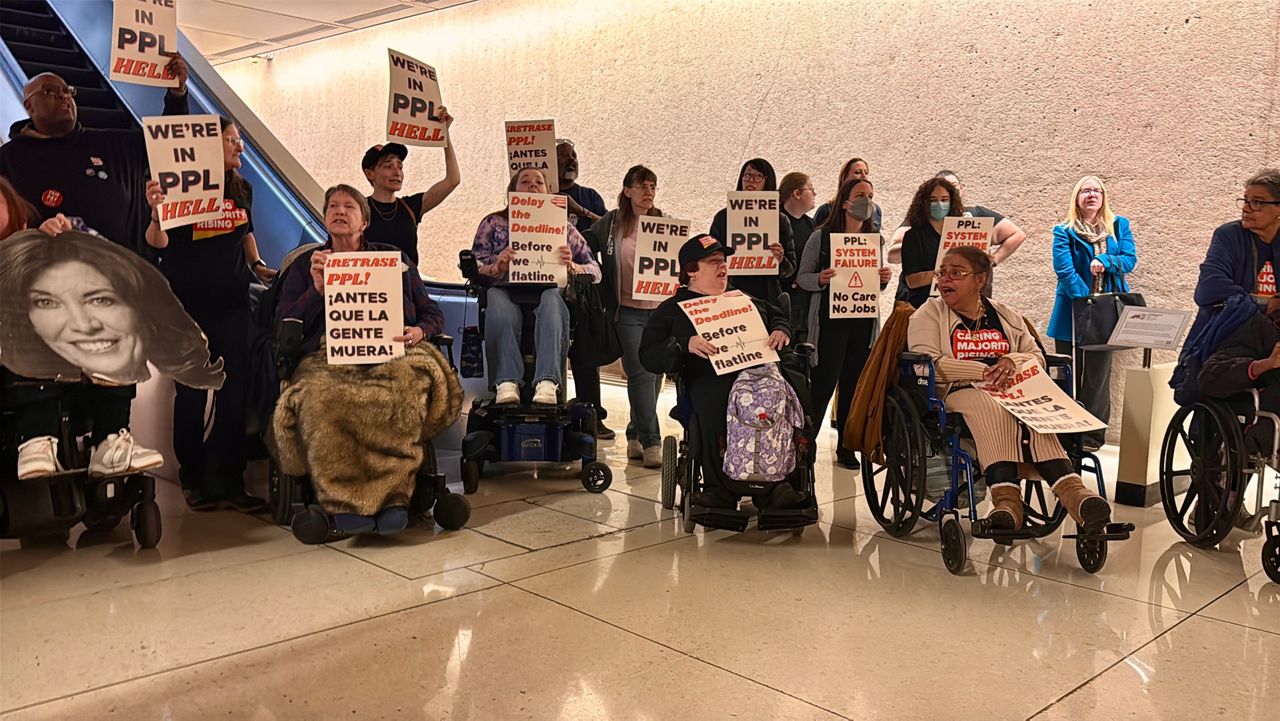Child care providers across the state said Thursday they're disappointed by Gov. Kathy Hochul's budget proposal, and her lack of new investments in the workforce will perpetuate underfunding in the sector, pushing it to the brink of collapse.
The COVID pandemic pushed the state's child care system into peril as many have closed their doors since 2020 and child care deserts have become more widespread.
Providers are feeling a tightening fiscal pinch without more funding for staff pay as one-time federal pandemic aid has dried up — funding in last year's budget that went to expand tax credits and other programs aiming to boost the workforce and help families afford care.
"A significant portion of the child care sector has really significant understaffing issues, and ultimately, that's preventing families from accessing the care that they need," said Pete Nabozny, policy director with The Children's Agenda based in Rochester.
Hochul specifically spoke about her child care proposals in detail in her past State of the State and budget addresses, but it was not a fixture of either speech this year.
Organizations that make up the Empire State Campaign for Child Care compiled data last year and found more than 20,000 children in New York on child care waitlists in the state, or across a quarter of New York's programs, Nabozny said. Advocates said empty classrooms sit waiting to provide the needed care, but remain dark without money to retain staff.
With federal funds exhausted and future state budget deficits on the horizon, Dede Hill, policy director with the Schyler Center, said it was discouraging the governor's budget does not commit more funding to recruit and retain staff for child care providers — creating a barrier for working families.
"If we don't get ahead of the workforce problem, then we're looking at actually sliding backwards, not moving forward, towards this vision of universal child care," Hill said Thursday.
Hochul's $233 billion budget proposal maintains last year's $7 billion commitment to child care over four years, and $1.8 billion in subsidized care. The executive budget creates Family Child Care networks to grow family-based care across the state, but does not pose other new tax incentives or programs to improve available care.
Last year's spending plan expanded the state's child care assistance program and $25 million in tax credits for businesses to expand child care access for workers. It also included $4.8 billion to establish the state Employer-Supported Child Care pilot program.
But Alicia Marks, who owns and operates Marks of Excellence child care center in Amityville, argues those kinds of tax incentives and similar programs do little to support staff and keep providers open.
"You can't improve families and give tax credits without giving the workforce and the providers the same luxury of being able to say that we care for kids together," Marks said Thursday.
New York state has a child poverty rate of 18.1% — higher than the national average, according to U.S. Census Bureau data.
Nabozny argues the expanded child care assistance means little without open slots to serve families.
"That's really driven by the fact that child care is a very underpaid field," he said.
Child care providers in the state make an average of $35,000 per year, or less than about 97% of jobs in other sectors.
Advocates will push the Legislature to include funding in the budget to boost staff salaries by $12,500.
Senate Children & Families Committee chair Jabari Brisport says the state can afford the much-needed increase by taxing the rich — something Hochul staunchly rejects.
"New York is the most unequal state in America with the greatest number of billionaires who do not pay what they owe," Brisport said. "And every day, New Yorkers overwhelmingly recognize that they are struggling to get by while billionaires get richer and richer.
"Many New Yorkers are struggling not just for child care, but their own health care bills, their rents and basic cost of living," he added.
Legislative leaders and Hochul and members of the state's Child Care Availability Task Force have said they ultimately will fight to achieve universal child care in New York. The program is estimated to cost between $5 and $7 billion annually.
Brisport said he suspects Hochul is against raising taxes on the wealthiest New Yorkers because it would displease the millionaires and billionaires who donate to support her campaign.
"There is no reason why we should not raise taxes on the wealth, the income and the financial transactions on the rich to raise tens of billions of dollars, or way more than we need for universal child care and other social services," the senator said. "Politics is always a power struggle... We know that we need to pass a budget for New York, and it's a matter of what there are the votes for."









